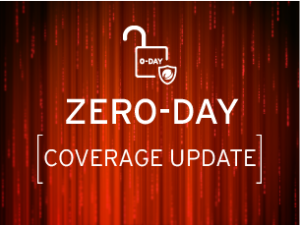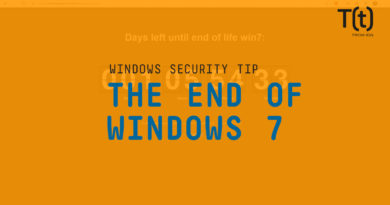Extending Public-Private Partnerships with Milipol

By: Loïc Guézo
At Trend Micro, we’ve been protecting consumers, SMBs, enterprises and government customers from the latest threats for three decades now. This has required us to build a global team of experienced researchers, state-of-the-art R&D labs and much more, to fuel our industry-leading cybersecurity solutions. We also understand that there’s a bigger picture —we can only hope to make an impact on global cybercrime with the close cooperation of governments and law enforcement agencies.
That’s why I’m thrilled to be joining the team behind Milipol, the world’s leading event for homeland security, and presenting at the next show in Qatar this week.
Introducing Milipol
Founded in 1984 in Paris, Milipol is now held in Doha, Qatar and Singapore. It offers law enforcement, government and other key homeland security stakeholders a forum to share knowledge and best practices, and learn more about the latest technology trends and solutions shaping the sector.
Doha 2018 represents the 12th time the small Middle Eastern country has hosted Milipol, and we’re expecting hundreds of exhibitors and more than 6,000 security professionals from more than 100 countries worldwide to attend. Although the event covers every aspect of homeland security, from forensic science and civil defense to road safety and prison security, the cyber sphere is increasingly important. The fight against organized crime and terrorism is very much an online fight as well, and increasingly the two worlds are merging, for example in threats to IoT-powered critical infrastructure.
Leading by example
It’s an honor to have been nominated in October 2018 to the Civilian Reserv of the French “Police Nationale” and then join the global Milipol committee. This is a testament to the strong trust Trend Micro has built with law enforcement over the years, in France and beyond.
Trend Micro has contributed to the French Security & Defence magazine for several years, along with serving as the Cyberthreat Trusted Advisor for the French Police Nationale. Our industry reputation and the strength of our research has bolstered this involvement, and has also lead to speaking slots at Interpol events and the French Jeudi de la Securite.
The presentation at the Qatar event will provide a high-level view of the current threat landscape, using Trend Micro’s latest midyear threat roundup report to illuminate some key trends. Additionally, I’ll moderate a panel session along with fellow Trender Shimizu Satoshi on October 31 covering security management for large events. Several other esteemed speakers from both the public and private sectors will be joining us in this session.
A continued commitment
This involvement with Milipol is a continuation of Trend Micro’s global efforts to support homeland security efforts. In fact, Trend Micro has always passionately believed that public-private partnerships are an essential prerequisite to effectively fighting cybercrime on a global scale. Yes, we can protect our customers from today’s worst cyber threats. But, longer term, we also need to work on disrupting and bringing to justice as many cybercriminals as possible — to make a career on the dark side an unappealing option.
That’s why we’ve signed up to countless collaborative efforts with law enforcement agencies: including major partnerships with Europol and Interpol. Our work has seen us extend our services and domain-area expertise to police around the world – from Asia to the UK. In fact, our landmark Memorandum of Understanding with the National Crime Agency (NCA) saw us work more closely than ever before with law enforcers in the UK, to find and bring to justice to a man responsible for several crypting and counter anti-virus (CAV) services. Another win came with the recent conviction of two masterminds of the notorious Scan4You CAV service.
In an age where crucial police funding is being cut in many regions, we’ll continue to offer our support and expertise wherever it is needed — to show that there are consequences to cybercrime.
Read More HERE



